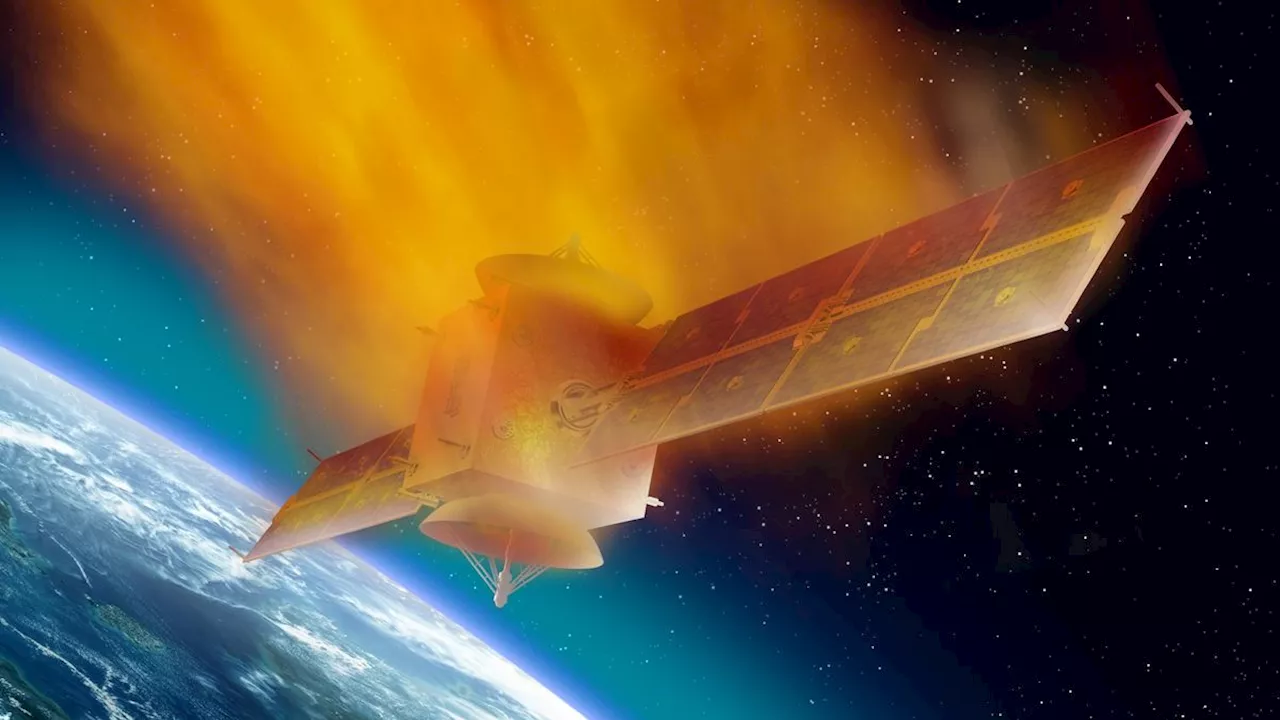Harry is a U.K.-based senior staff writer at Live Science. He studied marine biology at the University of Exeter before training to become a journalist. He covers a wide range of topics including space exploration, planetary science, space weather, climate change, animal behavior, evolution and paleontology.
"Spacecraft dust" from defunct satellites burning up in Earth's atmosphere could weaken our planet's magnetic field, a controversial new paper suggests.
When spacecraft end their missions, most are deorbited and burned up in Earth's atmosphere to minimize the amount of space junk circling our planet. However, as they fall apart in flames, the dying spacecraft litter our upper atmosphere with vaporized metal pollution.
And Solter-Hunt estimated between 500,000 and 1 million private satellites could orbit our planet in the coming decades. When all these satellites eventually fall to Earth it could dramatically increase the amount of spacecraft dust in the atmosphere to billions of times its current level, she said.
Worst-case scenario In Solter-Hunt's worst-case scenario, increased levels of radiation bombarding the upper ionosphere could begin to blow away the outer edges of our atmosphere — a phenomenon known as"atmospheric stripping," which has naturally occurred on planets like Mars and Mercury. 'Important first step'Some researchers praise the new paper for highlighting hidden potential issues of spacecraft dust.
"Even at the densities discussed, a continuous conductive shell like a true magnetic shield is unlikely," John Tarduno, a planetary scientist and magnetosphere expert at the University of Rochester in New York, told Live Science in an email. Some of the assumptions in the paper are also"too simple and unlikely to be correct," he added.
United States Latest News, United States Headlines
Similar News:You can also read news stories similar to this one that we have collected from other news sources.
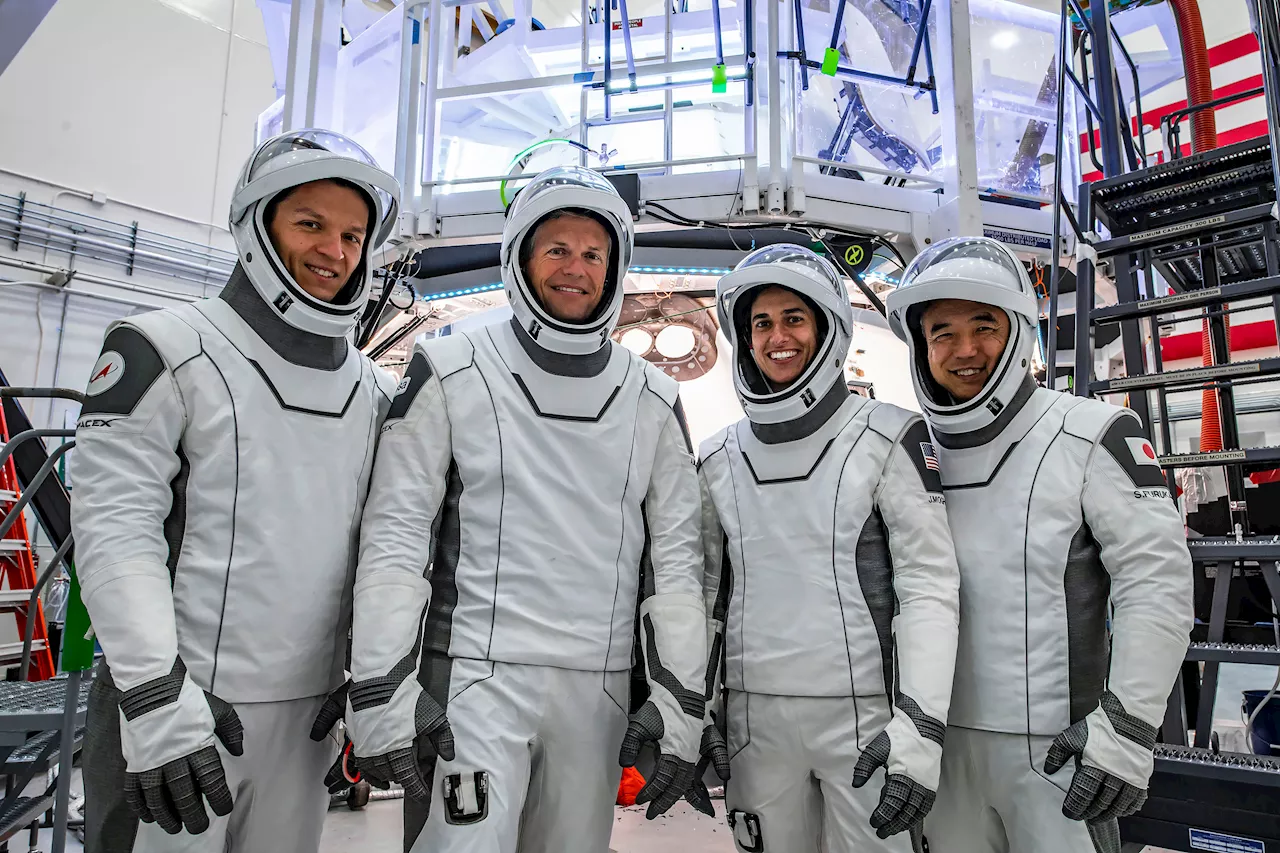 NASA’s SpaceX Crew-7 Return to Earth to Air Live on NASA PlatformsNASA will provide live coverage of the agency’s SpaceX Crew-7 return to Earth from the International Space Station, beginning with a change-of-command
NASA’s SpaceX Crew-7 Return to Earth to Air Live on NASA PlatformsNASA will provide live coverage of the agency’s SpaceX Crew-7 return to Earth from the International Space Station, beginning with a change-of-command
Read more »
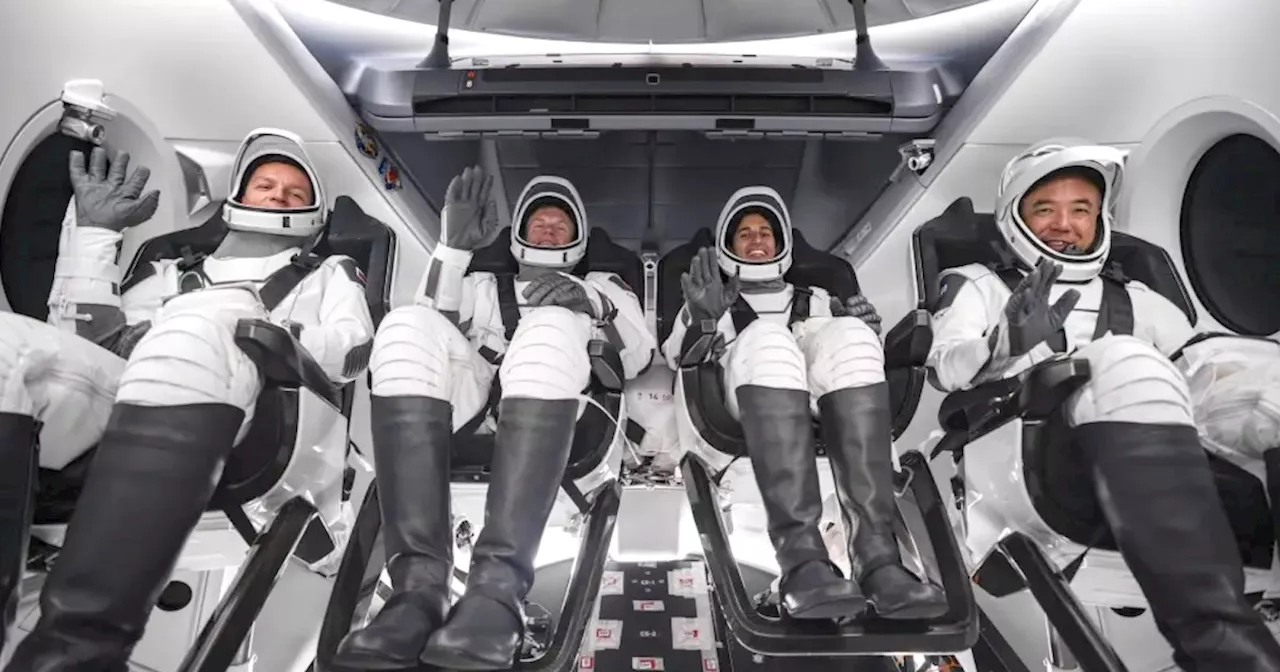 How to watch SpaceX Crew-7 return to Earth this weekDT Video
How to watch SpaceX Crew-7 return to Earth this weekDT Video
Read more »
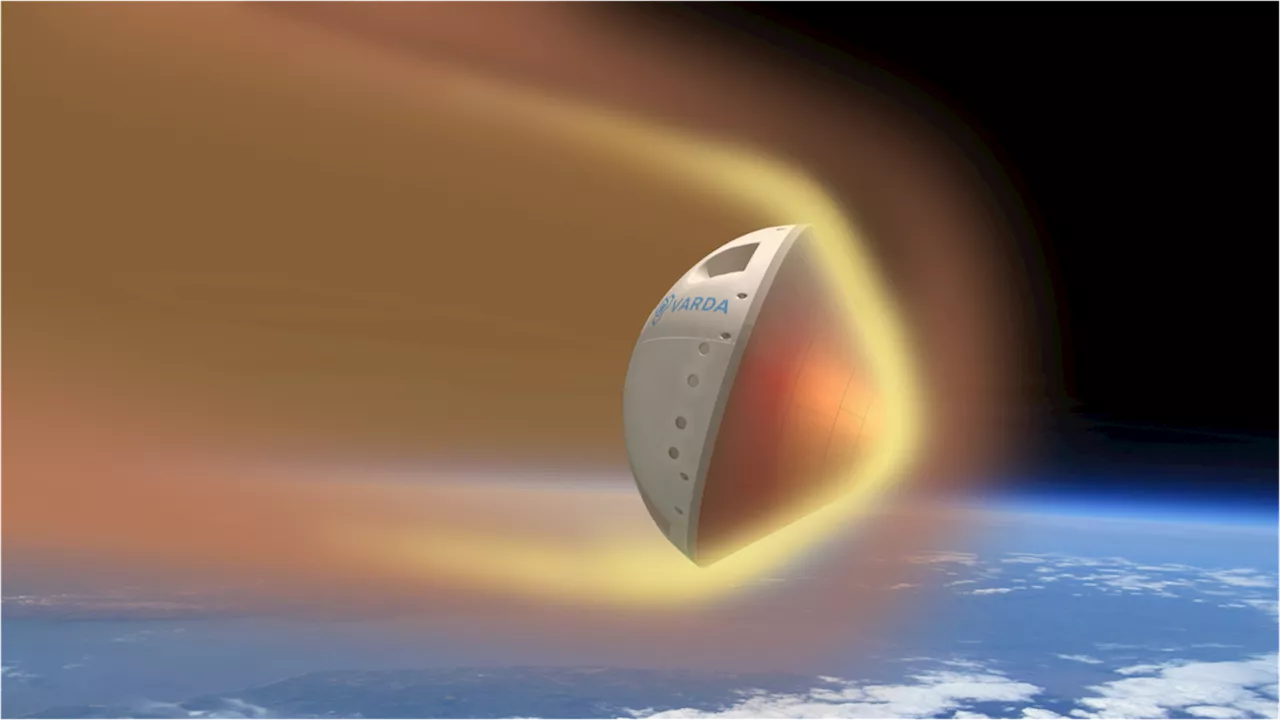 Private Varda Space capsule returns to Earth with space-grown antiviral drug aboardMichael Wall is a Senior Space Writer with Space.com and joined the team in 2010. He primarily covers exoplanets, spaceflight and military space, but has been known to dabble in the space art beat. His book about the search for alien life, 'Out There,' was published on Nov. 13, 2018.
Private Varda Space capsule returns to Earth with space-grown antiviral drug aboardMichael Wall is a Senior Space Writer with Space.com and joined the team in 2010. He primarily covers exoplanets, spaceflight and military space, but has been known to dabble in the space art beat. His book about the search for alien life, 'Out There,' was published on Nov. 13, 2018.
Read more »
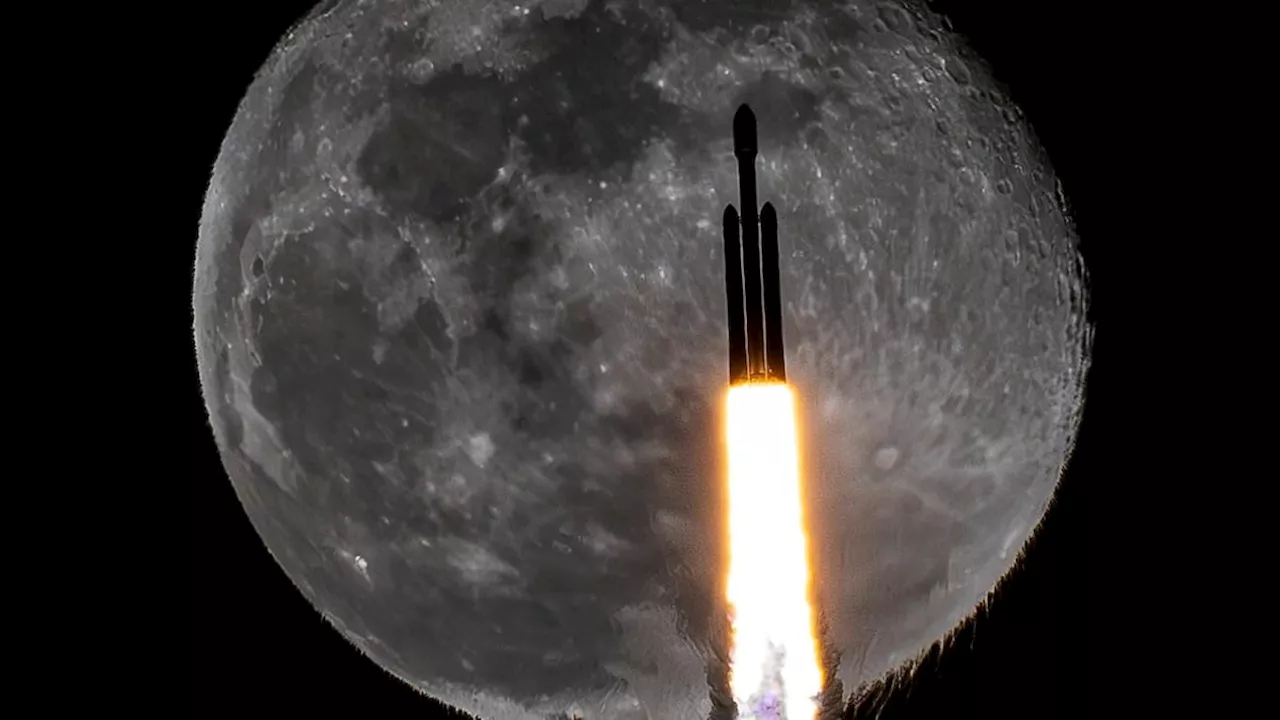 SpaceX Photobombs the Moon and More of the Week's Best Space ImagesPlus, an incoming comet and stunning new views from the ISS.
SpaceX Photobombs the Moon and More of the Week's Best Space ImagesPlus, an incoming comet and stunning new views from the ISS.
Read more »
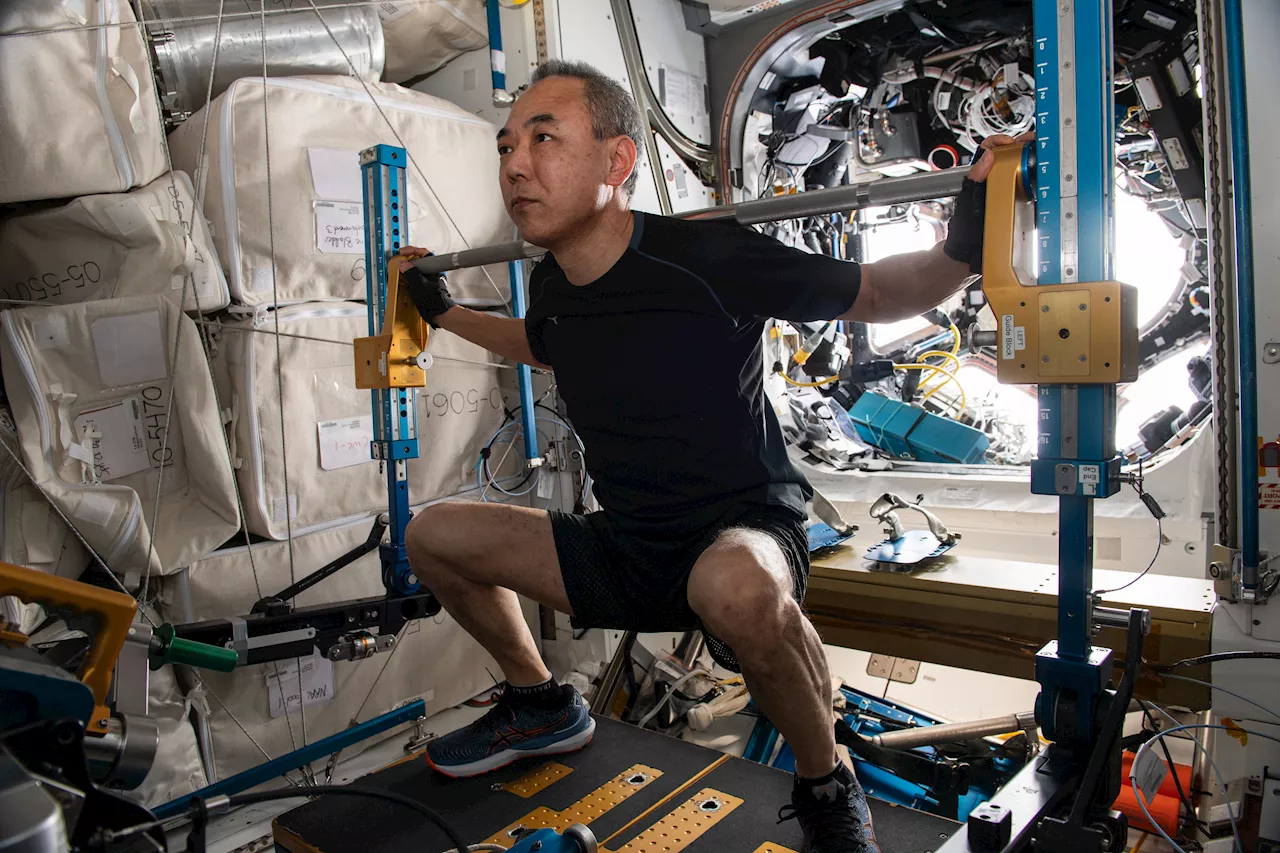 NASA’s SpaceX Crew-7 Completes Scientific Mission on Space StationAfter months aboard the International Space Station, NASA’s SpaceX Crew-7 is returning to Earth. NASA astronaut Jasmin Moghbeli and Roscosmos cosmonaut
NASA’s SpaceX Crew-7 Completes Scientific Mission on Space StationAfter months aboard the International Space Station, NASA’s SpaceX Crew-7 is returning to Earth. NASA astronaut Jasmin Moghbeli and Roscosmos cosmonaut
Read more »
